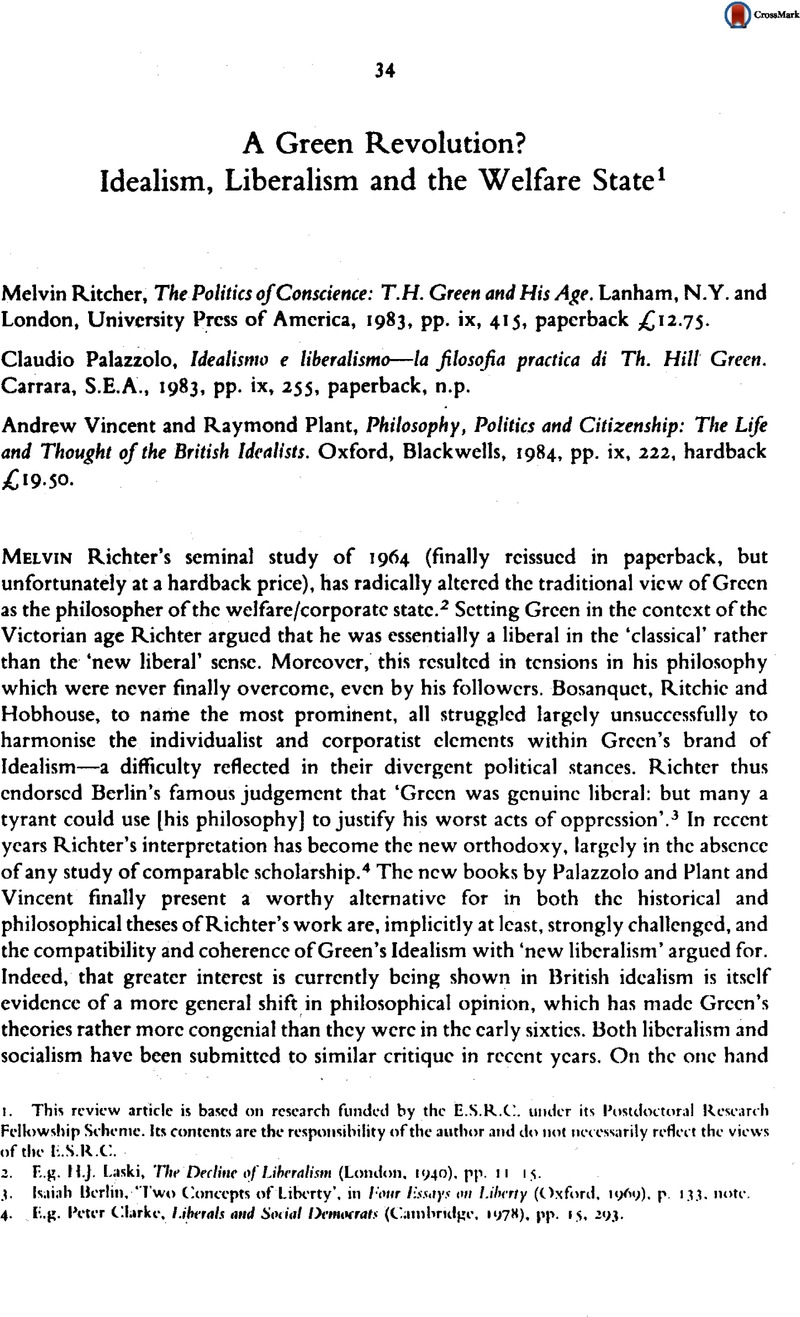Article contents
A Green Revolution? Idealism, Liberalism and the Welfare State1
Review products
Published online by Cambridge University Press: 23 June 2015
Abstract

- Type
- Review Articles
- Information
- Bulletin of the Hegel Society of Great Britain , Volume 5 , Issue 2: number 10 , Autumn/Winter 1984 , pp. 34 - 39
- Copyright
- Copyright © The Hegel Society of Great Britain 1984
Footnotes
This review article is based on research funded by the E.S.R.C. under its Postdoctoral Research Fellowship Scheme. Its contents are the responsibility of the author and do not necessarily reflect the views of the E.S.R.C.
References
2. E.g. Laski, H.J., The Decline of Liberalism (London. 1940). pp. 11, 15 Google Scholar.
3. Berlin, Isaiah, ‘Two Concepts of Liberty’, in Four Essays on Liberty (Oxford, 1969). p 133 Google Scholar. note.
4. E.g. Clarke, Peter, Liberals and Social Demmocrats (Cambridge, 1978), pp. 15, 293 CrossRefGoogle Scholar.
5. This has stemmed above all from the work of Taylor, Charles, Hegel (Cambridge. 1975)CrossRefGoogle Scholar and the various articles in which) he has developed the implications of Idealism for contemporary political doctrines.
6. Green, T.H., Prolegomend to Ethics (Oxford. 1883), §§8. 33 Google Scholar.
7. Ibid. §125.
8. de Ruggiero, Guido, Contemporary Philosophy, trans. Hannay, A.H. and Collingwood, R.G. (London, 1921). pp. 269–72Google Scholar.
9. MacIntyre, Alasdair, Secularization and Moral Change (London, 1967). pp. 269–72Google Scholar.
10. Green, Prolegomena. §232; also, Green, T.H., Lectures on the Principles of Obligation in Works II. ed. Nettleship, R.L. (London, 1890), §25Google Scholar.
- 2
- Cited by


